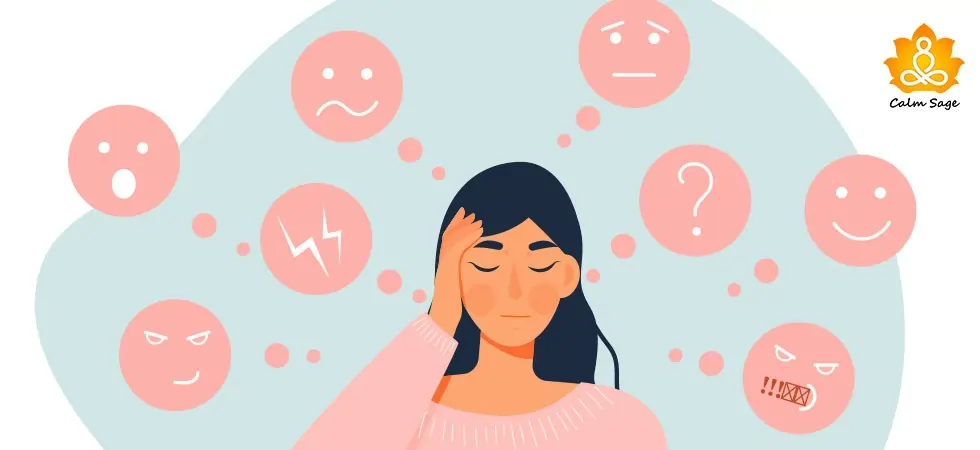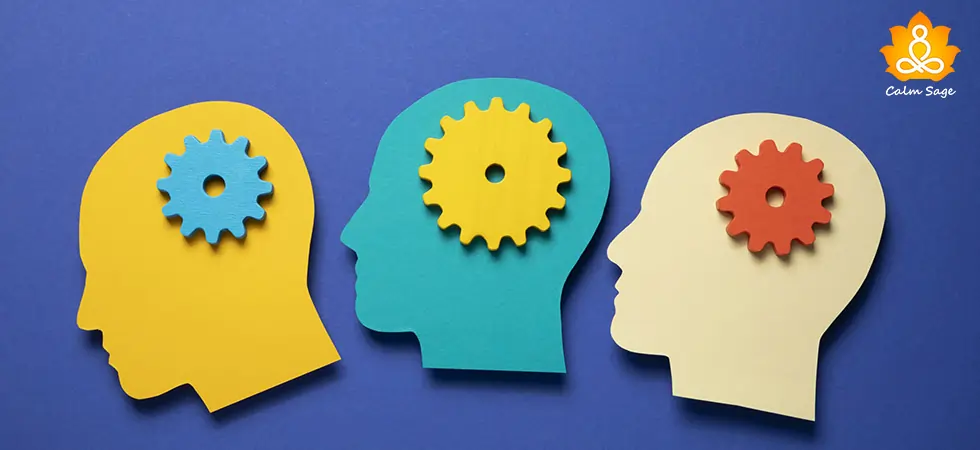Cyclothymic Disorder – Symptoms and Treatment

Cyclothymia, also known as cyclothymic disorder is a rare mood disorder that causes fluctuations in emotions, although not as intense as those experienced in I or II disorders. However, in cyclothymia, a person may experience periods where their mood noticeably shifts up and down. There might be times when they feel on top of the world, followed by periods where they feel down. Between these highs and lows, they may experience stability and feel fine.
While the emotional ups and downs in cyclothymia are less severe compared to the disorder, it is important to seek help for managing these symptoms since they can impact your functioning and increase the risk of developing I or II disorder.
Treatment options for cyclothymia include talk therapy (psychotherapy), medications, and regular follow-up appointments with your doctor. This post will discuss this disorder and how it can be treated.
What Is Cyclothymia?
Cyclothymia is a mild mood disorder that shares similarities with bipolar II. In both these conditions, the patient experiences ups and downs ranging from elevated moods to depressive states. Moreover, the person has recurring periods of mania (hypomania) and exhibits symptoms of low-level depression.
Cyclothymia is diagnosed when these signs persist for a minimum of two years (or one year in children). These mood fluctuations come in a pattern, and in the period between these extremes, individuals may feel that their mood is stable.
What is the difference between Cyclothymia and Bipolar Disorder?
The seriousness of the symptoms is the primary distinction between these two disorders.
- Mood swings in Cyclothymia are not as extreme as in Bipolar disorder.
- In Bipolar disorder, severe symptoms of mania and major depression are observed, whereas in Cyclothymia, there are mild mood fluctuations. This is why it should be treated, as when ignored, the risk of bipolar disorder is increased.
- Cyclothymia develops during teenage but the signs go unnoticed as at this age others and themselves perceive it as being “moody.”
Symptoms and Causes
Cyclothymia is characterized by mood swings that alternate between periods of hypomania and mild depression.
While bipolar I and II disorders involve mood changes that occur over weeks, months, or even years, cyclothymia can lead to mood changes within the same day.
Hypomania in cyclothymia manifests as a period of elevated mood or emotions, increased energy levels, and heightened activity. These changes must be noticeable to others. Hypomania is considered a severe form of mania.
Signs and symptoms of hypomania include:
- Increased energy and decreased need for sleep.
- Fast speech and racing thoughts.
- Easy distractibility.
- Heightened focus on goals in various aspects of life like work, school, and social pursuits.
- Engagement in risky behaviors or impulsive decisions such as excessive spending, reckless sexual encounters, or impulsive business choices.
- Elevated self-esteem compared to normal levels.
Depressive symptoms in cyclothymia involve feelings of hopelessness and a diminished interest in activities previously enjoyed. It’s important to note that depressive episodes in cyclothymia are milder compared to those experienced in clinical) depression.
Signs and symptoms of an episode include:
- Experiencing feelings of isolation, having low self-esteem, and feeling guilty.
- Notice changes in eating habits, either eating more or less than usual.
- Having difficulty falling insomnia) or struggling to stay awake (hypersomnia).
- Feeling fatigued or experiencing a loss of energy.
- Experiencing a decreased ability to concentrate.
What are the potential causes of cyclothymia?
The exact causes of cyclothymia are still unknown to researchers. However, they believe there may be a component since cyclothymia, depression, and bipolar disorder often have familial patterns.
In some cases, traumatic events or experiences such as illness or prolonged periods of stress can trigger cyclothymia.
How Cyclothymia can be treated?
As the symptoms of Cyclothymia are mild it frequently goes undiagnosed and untreated. However, the depressive symptoms of this condition are very unpleasant, and they interfere with daily functioning. When the feeling of depression or instability grows only then a person seek treatment.
There are no approved medicines to treat cyclothymia; however, mood stabilizers like lithium and others are sometimes prescribed to deal with mood fluctuations. However, there is a risk involved with antidepressants as they can trigger or worsen mania symptoms in some individuals. Therefore, they should be administered when given.
How to live with mood disorders caused due to Cyclothymia?
Living with mood disorders is not easy as people around face difficulty in understanding how to act and react. Also, mood fluctuations, highs, and lows often harm a person and professional work and relationship. People with cyclothymia have difficulty developing relationships and maintaining them. Therefore, erratic behavior is not only self-destructive, but it also leads to several other problems due to which people with cyclothymic disorder are prone to drug use.
Also, people with this condition are at increased risk of developing bipolar disorder. Therefore, before the situation goes out of hand, it is best to deal with it and talk to a professional to start the treatment.
When should you seek support?
If you notice that you often have mood swings or someone you know is struggling with it, consult a psychologist, as they will be able to help you and assess what the issue is. Don’t be afraid to ask for help; it is the first step towards recovery.




















